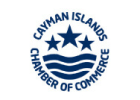Human Rights arrive in the Cayman Islands today!
by Gemma on November 6, 2012
An article by Richard Coles, the Chairman of Human Rights Commission, was published in today’s Compass. He opens with the line: ‘As chairman of the Human Rights Commission, I am pleased to share in the celebrations of Implementation Day. Today – 6 November, 2012 – is a monumental day; one of which we should all be proud; one which marks a new beginning for the people of the Cayman Islands. Today is the day in which our Bill of Rights, Freedoms and Responsibilities become enforceable on a local level….’
The 6th of this November is the day the Cayman Islands’ first Bill of Rights takes legal effect – three years since the signing of the 2009 Constitution Order between Cayman and the UK.
As of that date, the Bill of Rights will allow individuals who feel government has infringed upon their rights to take their claims either to arbitration or the Grand Court using a local law. More importantly, the advent of human rights in Cayman after 6 November will give residents a local recourse in cases where they believe violations have occurred.
Option one will be to bring a claim to the Human Rights Commission, which can make non-binding rulings on cases and which will offer arbitration services as an alternative to Grand Court proceedings. “We hope that will be utilized, so that only cases that really need to go to the Grand Court go to the Grand Court,” Coles says. “That’s a lot cheaper and a lot faster, I suspect.”
WHAT ARE HUMAN RIGHTS?
The official title within the Constitution Order [2009] is the Bill of Rights, Freedoms and Responsibilities; it is the first such declaration of rights ever contained within a Cayman Islands governing document.
The bill sets out 19 separate rights that residents of the country have in dealings with their government. The application of those rights is “vertical”, in other words, between the individual or company and the state. The bill of rights has no application between an individual and another individual, or a person and their employer.
Rights include the right to life, the right to be protected against torture and inhumane treatment, the right to be protected against slavery or forced or compulsory labour, the right to personal liberty, the right to treatment of prisoners, the rights to a fair trial and no
punishment without law, the right to private and family life, the right to conscience and religion, the right to expression, the right to assembly and association, the right to movement, the right to marriage, the right to property, the right to non-discrimination, the protection of children, protection of the environment, the right to lawful administrative action and the right to education.
ALL PUBLIC ENTITIES!
Human rights experts expect to see the most complaints in the area of lawful administrative action. Section 19 of the bill states that all actions of public officials must be “lawful, rational, proportionate and procedurally fair”. Every person whose interests have been adversely affected by such a decision or act has the right to request and be given written reasons for that decision or act, Section 19 of the Bill of Rights goes on to state.
Every single government body, board, commission and committee fall under the legislation as of 6 November. Human rights officials expect that particularly the Work Permit Board will face increased number of complaints.
Commissions Secretariat Director Deborah Bodden says the advent of the Bill of Rights means it is absolutely crucial for coherent policies to be in place before government bodies make decisions and that those policies are followed. The key for government departments looking to defend themselves from such claims: Be sure and write everything down. “We’ve been encouraging policies and procedures to be written, rather than just spoken about which will change a lot of things for government,” she says. “If you make a decision…you must be prepared to give somebody the written reasons for why,” says Commissions Secretariat director Deborah Bodden.
Cayman’s immigration boards have operated for years under sets of guidelines that have never been made available for public consumption. Although it doesn’t expressly require it, the territory’s new human rights regime will encourage all government boards to make public their policies and operating procedures, Ms Bodden said. “One of the things that we’ve said to them is that written policies and procedures should be available,” she said. “There is no reason, unless they can be exempted under FOI, there is no reason that the general public cannot understand what they need to do.”
SHARE THIS ARTICLE
Recent Articles









